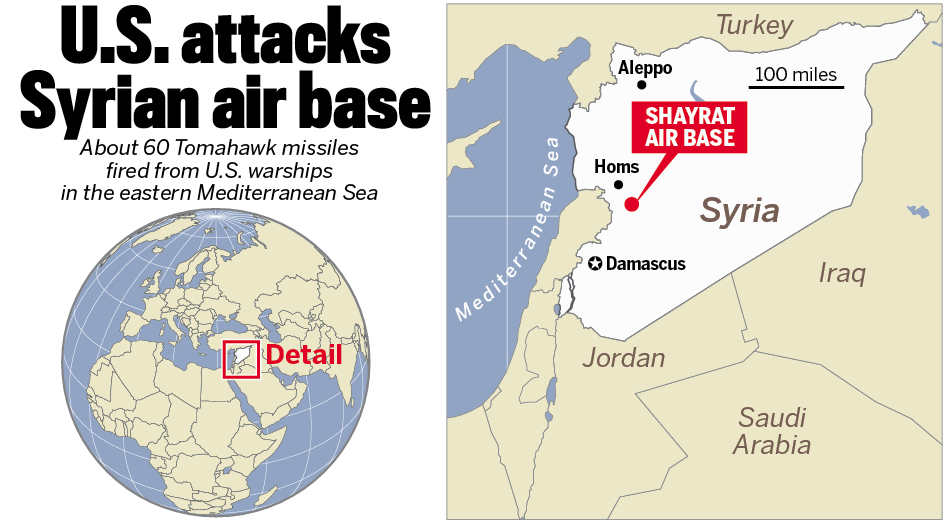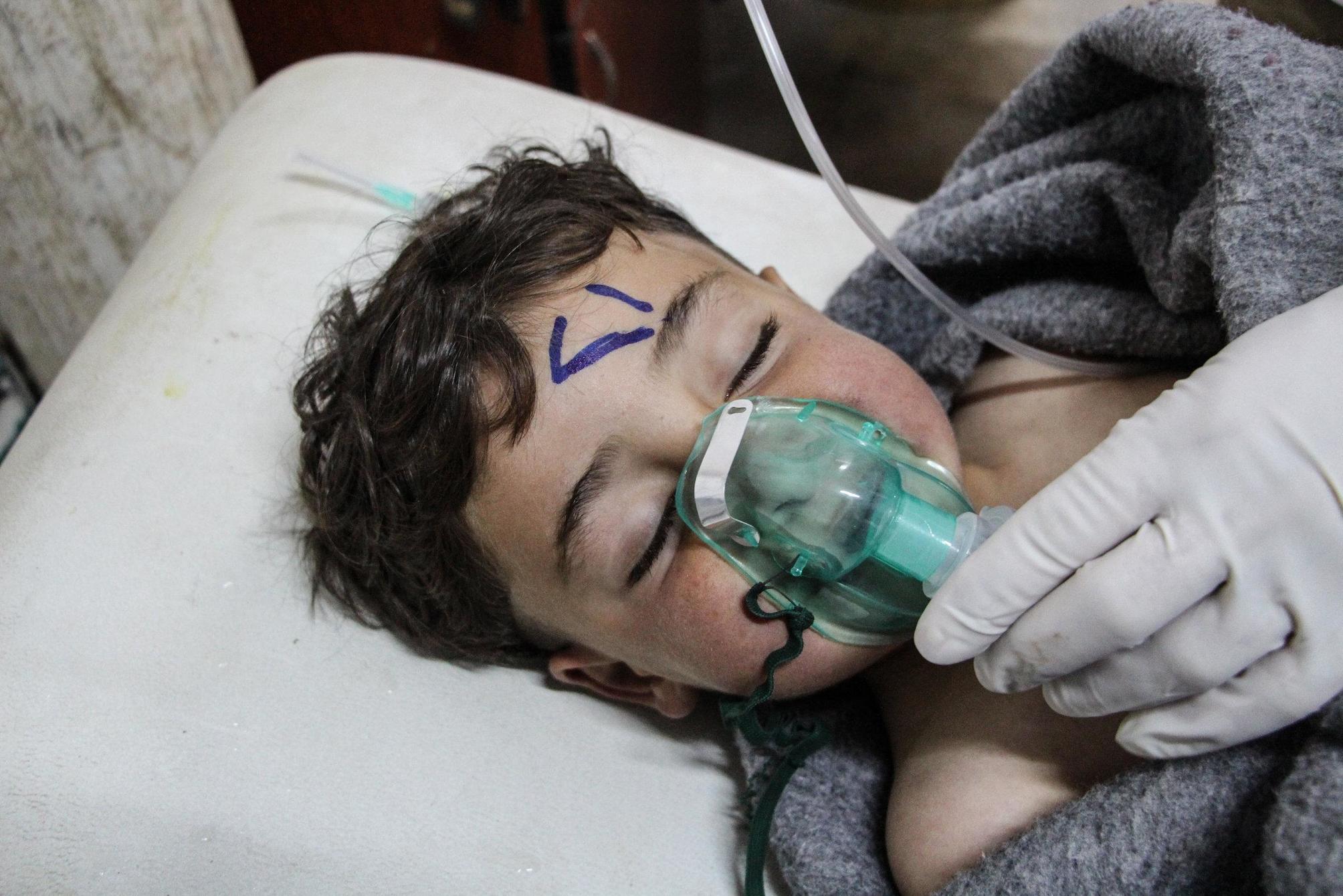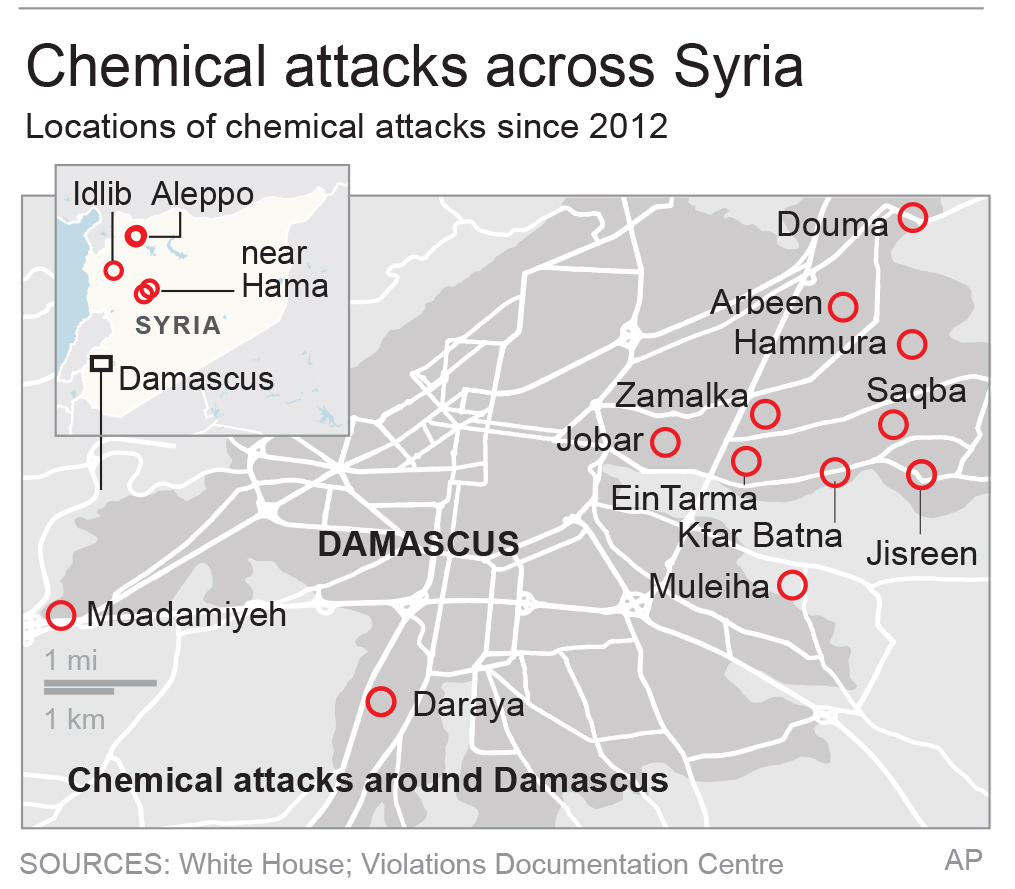What we know about the missile strike on Syria
President Donald Trump ordered a missile strike early Friday on a Syrian air base in response to this week’s chemical attack, which marked the first time the U.S. has directly targeted Syrian President Bashar Assad’s forces.
The overnight missile attack was condemned by Assad’s allies in Russia and Iran but welcomed by the Syrian opposition and its supporters, who expressed hope it signaled a turning point in the devastating six-year-old civil war.
The bombing represents Trump’s most dramatic military order since taking office and thrusts the U.S. administration deeper into the complex Syrian conflict.
Here’s what we know about the attack and its implications:

Credit: Newsday / Rod Eyer
The details of the attack
About 60 U.S. Tomahawk missiles hit the Shayrat air base, southeast of Homs, a small installation with two runways, where aircraft often take off to bomb targets in northern and central Syria. The U.S. missiles hit at 3:45 a.m. (0045 GMT) Friday morning and targeted the base’s airstrips, hangars, control tower and ammunition areas, U.S. officials said.
They were fired from two warships in the Mediterranean Sea, in retaliation for Tuesday’s deadly chemical attack, which officials said used chlorine mixed with a nerve agent, possibly sarin.
The Syrian military said at least seven people were killed and nine wounded in the strike.
Trump’s statement
My fellow Americans:
On Tuesday, Syrian dictator Bashar al-Assad launched a horrible chemical weapons attack on innocent civilians. Using a deadly nerve agent, Assad choked out the lives of helpless men, women and children. It was a slow and brutal death for so many. Even beautiful babies were cruelly murdered in this very barbaric attack. No child of God should ever suffer such horror.
Tonight, I ordered a targeted military strike on the airfield in Syria from where the chemical attack was launched.
It is in this vital national security interest of the United States to prevent and deter the spread and use of deadly chemical weapons.
There can be no dispute that Syria used banned chemical weapons, violated its obligations under the Chemical Weapons Convention, and ignored the urging of the U.N. Security Council.
Read the full statementSyria’s response
Assad’s office called the U.S. missile strike “reckless” and “irresponsible.” The Britain-based Syrian Observatory for Human Rights, an opposition monitor, also put the death toll at seven, including a general and three soldiers.
Syria has denied using chemical weapons.


